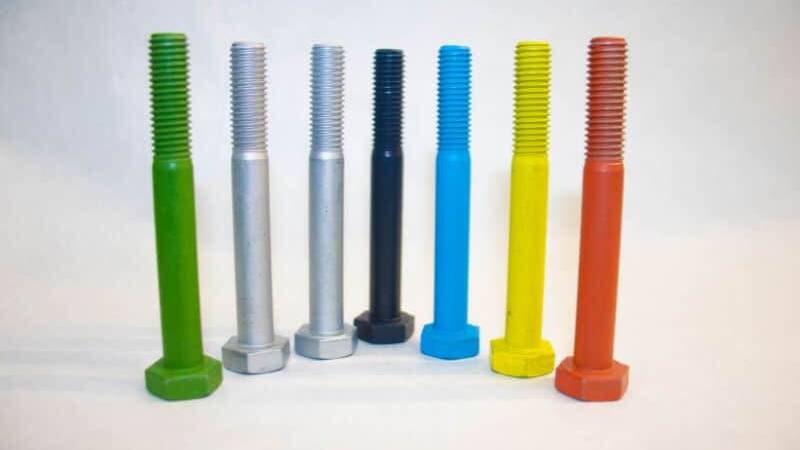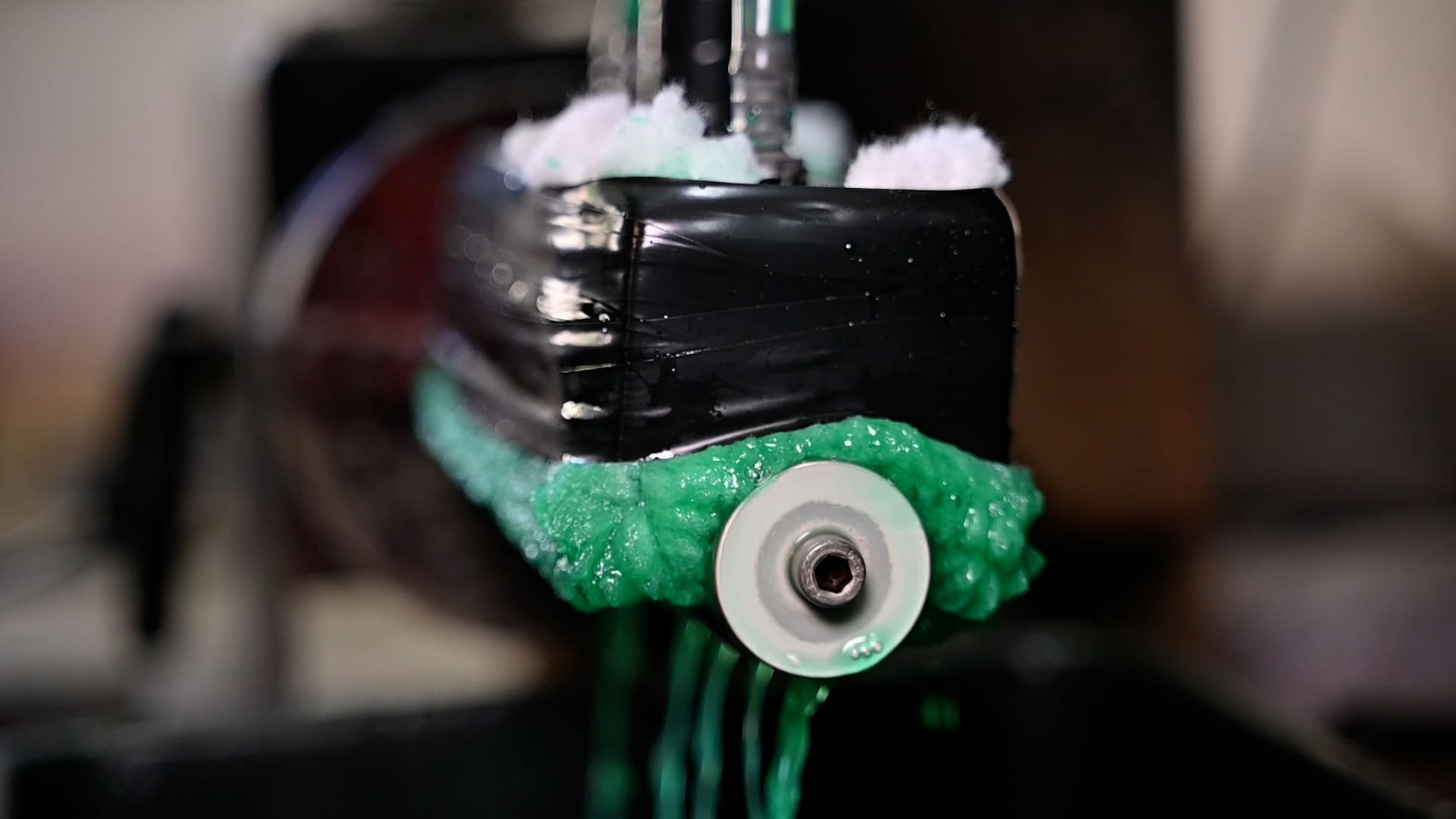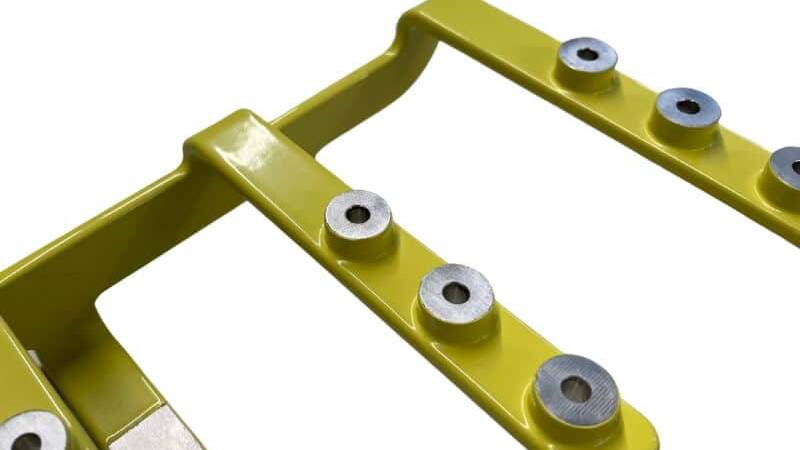News
Keep updated on new coatings and ink solutions, best practices or information on latest regulations here !
Newsletter #6 – Innovating Heating Elements with Loctite® PTC Inks
Whether for mobility, healthcare, textiles, or home comfort, Loctite® PTC ink portfolio opens new possibilities for safe, efficient, and customized…
Newsletter #5 – Advanced Anti-Corrosion Coatings for Sustainable Industrial Operations
Corrosion is one of the leading causes of industrial downtime and equipment failure — and it's exactly the challenge we help you overcome.
Newsletter #4 – Selective Electrolysis – The Smart and Sustainable Solution for Repair & Protection
Tetrachim is proud to introduce its new range of nickel, Zinc-nickel, copper and silver-based electrolytes by Lorilleux, designed to offer precision,…
Newsletter #3 – Navigating Regulations and Selecting the Best Coating Solutions for Fluid Transfer – An Update by Tetrachim
Here is our selection of coatings that offer excellent chemical and corrosion resistance, making them suitable for various water treatment and…
Newsletter #2 – 6 Tips for Mastering Thermal Spray with a Handheld Gun
Discover 6 expert tips for mastering thermal spray with a handheld gun for high performance coatings. Enhance durability, improve efficiency, and…
Newsletter #1 – Our Selection of Specialty Coatings for Electrical Applications
Explore our selection of cutting-edge coatings that are key to develop the electrical systems needed for the future of our mobility and our industry.
How to comply with NMP restriction?
NMP-based coatings are now under restriction in the EU, regulatory update and guidelines to help you get into compliance and protect the health of…
Introducing thermoformable inks for flexible circuits
Recently there has been an increasing interest for thermo-forming and In-Mold Electronics to come up with lighter, more cost-efficient design for a…
FAQ – Problem solving
There are numerous benefits linked to the use of non-stick coatings. Starting with the easiness to clean which has always been paramount in many industries, in particular the food industry. This feature has become of even greater importance lately with the increased focus on the fight against microbial and viral contamination. Applied to metallic surfaces, non stick coatings combine the resistance to wear of metal to the incredible convenience when it comes to de-molding either a rubber sole or a cake. To be noted, the resistance to wear of non-stick polymers can be also increased thanks to the use of special mineral additives. In the end, another under-estimated benefit of non stick coatings is its ability to reduce energy costs as it allows for a lower friction level between parts. This is a welcome benefit in the transportation industries to eliminate unwanted noise but also for conveyor belts in the general industry in order to reduce electricity consumption.
A primer undercoat creates a chemical bond producing strong adhesion between the substrate and the coating. It also ensures durable protection against corrosion should the coating be damaged. Priming ensures better adhesion of paint to the surface, increases paint durability, and provides additional protection for the material being painted. Some products contain an adhesion promoter in their formulation, enabling to apply directly on metal without using a primer. The choice of these solutions depends on the final use conditions. In all cases, if in doubt, do contact us for an advice.
Coatings should be applied over clean substrates. Normal industrial practices, such as chemical washes or solvent cleaning and degreasing can be used, but precautions must be taken to remove all residues from the cleaning process.
Preheating metal substrates is advantageous in removing traces of oil and other contaminants, especially when the metal is cast and somewhat porous.
Depending on the initial condition of the metal, it may be necessary to physically remove dirt, rust, mill scale, paint, etc. Grit blasting is the method most commonly used to obtain good adhesion. other methods of surface roughening are employed in special cases. Wheel sanding, wire brushing and directional grinding may be used where best adhesion is not required. However, these operations reduce adhesion in the direction of the grind.
Cleaning by grit blasting, sandpaper, steel wool or No.400 emery cloth is much better than any chemical etching such as chromic acid, hydrochloric acid, or sulphuric acid.
Conversion coatings are the modified surfaces of metal resulting from specific chemical treatment. These conversion coatings, which can be on steel, aluminium or most other metals, typically include zinc, manganese and iron phosphates or chromates.
The principle function of these coatings is to improve adhesion of finishes and to maximise corrosion resistance. The functionality of conversion coatings depends upon their uniformity and the integrity of the coating, both before and after application of the final finish.
For more information, read our application guide
The paints and coatings industry is increasingly eager to develop sustainable product offerings to reduce environmental pollution. As such, Tetrachim is constantly looking for efficient bio-based materials. As such, Rilsan® polyamide resin is produced from castor oil obtained from the widely cultivated Ricinus communis. Castor oil is 100% vegetable, biodegradable, natural, non-toxic and renewable. Being environmentally sound, Rilsan® Fine Powder is the right product for customers in search of eco-design. In addition, Rilsan® polyamide resins require less non-renewable energy than most performance polymers and offer a responsible choice for the environmentally aware.
Go to our bio-based product selection
Get in touch with our team
+33 (0)1 61 44 02 90
You have not found the answers you were looking for? Help us improve our Knowledge Center sending us a message with your request. We will get back to you shortly!














